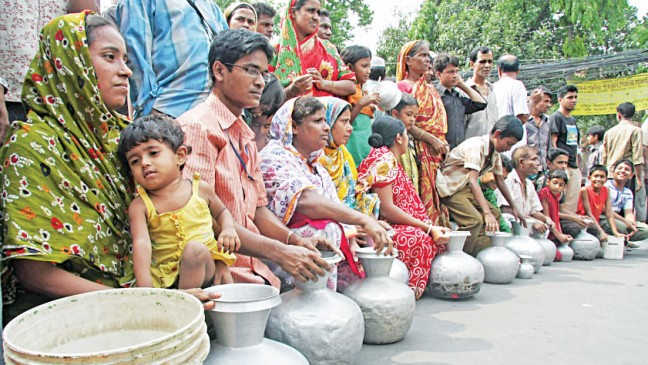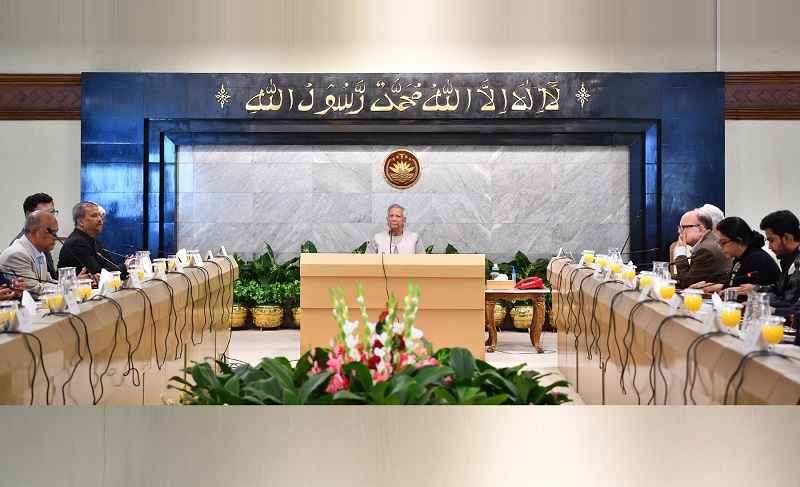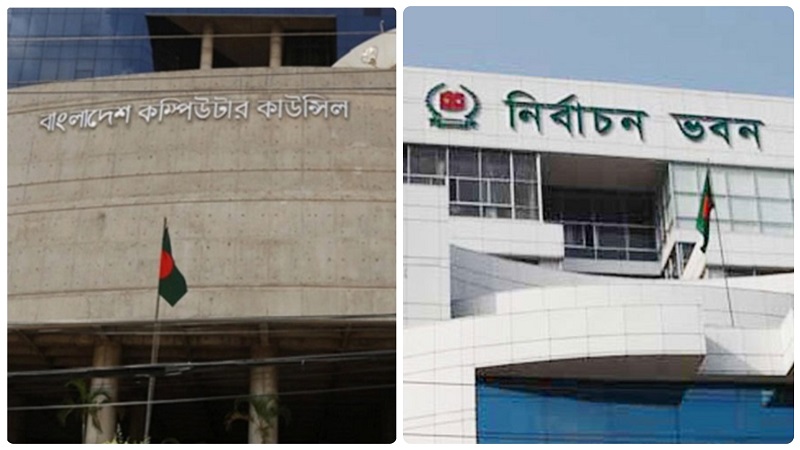Bangladesh Bank will issue a sukuk next week, the first of its kind in Bangladesh, to raise Tk 8,000 crore for the implementation of a safe water supply project.
The finance ministry is the originator of the Shariah-compliant bond, and the central bank will act as a special purpose vehicle (SPV) for the issuance of the security.
A memorandum of understanding between the central bank and the finance ministry was signed yesterday on issuing the bond.
A sukuk is an Islamic financial certificate, similar to a treasury bond, which complies with Shariah laws.
The government began to implement the project titled "Safe Water Supply for the Whole Country" on January 1. The fund raised by the sukuk will be invested in the project.
The overall cost of the project is estimated at Tk 8,851 crore, of which Tk 851 crore will be provided by the government, according to a prospectus prepared by both the central bank and the finance ministry. The Department of Public Health Engineering (DPHE) will implement the project by June 30, 2025.
On October 8, the finance ministry issued guidelines on the investment criteria of the sukuk.
Investors will receive a profit of 4.69 per cent on their aggregate investment in the Islamic bond. The central bank has fixed the rate based on the Bangladesh Government Islamic Investment Bond (BGIIB).
The last declared profit-sharing ratio of the six-month BGIIB is 3.69 per cent, and the central bank has added 1 percentage point to settle on the rate for the sukuk.
Profits will be paid to investors on a half-yearly basis.
A client will have to invest a minimum of Tk 10,000 in the security, and there is no upper limit. Banks, corporate institutions and individuals will be permitted to invest.
The central bank will hold an auction next week when Tk 4,000 crore will be mobilised through the sale of the certificates. If the bidding amount surpasses the targeted fund, the auction committee will allocate the certificates proportionately among the bidders.
The central bank will raise the rest Tk 4,000 crore in May.
In Bangladesh, there is a concern over high morbidity and mortality related to water-borne diseases, according to the prospectus.
The government has installed more than 1.4 million tube wells in rural areas, and 88 per cent of people have been brought under the safe water supply coverage.
"However, the situation is yet to improve," the paper said.
Under the project, the government will build infrastructures such as arsenic iron removal plant, rain water harvesting unit, and hydrological characterisation.
The DPHE will also set up submersible pumps, deep tube wells, hand pumps and multiple hand pumps as part of its efforts to supply safe water at every upazila.
HOW THE SUKUK WILL OPERATE
The government will hand over the ownership of the project to the central bank, which will mobilise funds by issuing sukuk certificates.
The government will rent the project from the central bank for the time being and provide a particular amount of rent regularly to the BB.
The central bank will use this rent to give the 4.69 per cent profit every six months to the investors.
The government will purchase the whole project once the implementation is complete. The principal fund will then be provided to the investors from the amount given by the government.
The BB has formed two committees – trustee and Shariah –to issue the bond.
The trustee committee headed by a deputy governor will ensure the rights and benefits of sukuk certificate holders and mitigate disputes.
The Shariah advisory committee headed by an executive director will give decisions (fatwas) and suggestions on various issues related to sukuk compliance in light of Shariah principles.
The government plans to float more sukuks to implement large projects, said a central bank official.
Although the earnings from the sukuk will not be spent to manage deficit financing as per the Shariah laws, the new tool will give respite to the government from shelling out a considerable amount of money to implement infrastructure projects.
This will ultimately help the government manage the deficit financing efficiently.
Since the traditional interest-paying bond structure is not permissible under Islamic law, the issuer of a sukuk essentially sells a certificate to a group of investors and then uses the proceeds to implement a project where the group has a direct partial ownership interest.
Although the government, through the central bank, will borrow from individuals and business entities using the sukuk, there are many differences between the Islamic bond and the Treasury bonds.













